Criminal Attorney Marietta, GA
Georgia Pretrial Diversion
Facing a serious criminal charge often results in embarrassment, anxiety, and frustration, not to mention the severe consequences to one’s personal life. Arrests, even for the pettiest of crimes, are entered in the criminal history record of the offender and will stay there forever.
No matter the age, an individual with a criminal record can have a difficult time achieving certain things in life. Their ability to apply for college education, qualify for financial assistance, obtain government security clearances, as well as finding employment opportunities will be hampered drastically by even one conviction.
Aside from this, the possible penalties that are carried out immediately after the conviction can include jail time, steep fines, and suspension of one’s driving license.
Fortunately, the state of Georgia has alternatives that could allow alleged criminals to avoid experiencing the full consequences of being convicted.
Possible Legal Alternatives for Offenders in Georgia
When faced with a criminal conviction, individuals have options they can choose from to potentially avoid a trial and jail time. Two of those options are a plea deal and GA's First Offender Act.
Agreeing to a plea bargain is ideal when the offender does not want their case to drag on. Having a good criminal defense lawyer can help offenders get the best plea deal for their situation.
Meanwhile, a GA first offender program is best when the defendant does not have past criminal records.
What if an offender is not offered a suitable plea deal and is also not eligible for the first offender program? This is where a
GA Pretrial diversion program comes in.
How Does a GA Pretrial Diversion Work?
Pretrial intervention is a program established by Georgia under O.C.G.A. §15-18-80. It works as an alternative to prosecuting an offender according to the criminal justice system.
The goal of this program is to assist in reforming these offenders and helping them avoid committing further crimes. Georgia found this a suitable option rather than sending offenders to jail where they have little opportunity to learn.
Pretrial intervention programs often require offenders to take life skill classes or attend counseling that will help them become upstanding members of society. The state believes in helping offenders so that they can prevent these individuals from becoming repeat offenders. Aside from taking classes and counseling, other common requirements for a GA Pretrial diversion program include paying a fee, doing community service, and probation. Some courses go through a private organization or can be completed online.
Juvenile offenders may be required to write an essay detailing what they have learned from their experience. The requirements for each case usually depend on the original offense of the individual. They are intended to both educate and punish the offender in the hopes that they do not commit similar offenses in the future.
What Cases Are Eligible for Pretrial Diversion?
The most common cases that are accepted in Pretrial diversion programs include underage alcohol consumption, shoplifting, marijuana possession, and certain domestic violence charges.
However, exceptions can still be made even if a person is charged with a different case than what is usually accepted for a diversion program. Working with a trusted criminal defense lawyer that is experienced with these issues could work out a resolution that leads to the same final result.
Many courts in Georgia offer Pretrial diversion programs even for felony charges like theft and drug offenses. Although these programs follow the same structure as first-time misdemeanor cases, they often have stringent requirements and take longer to complete.
For first offenders, acceptance into a Pretrial diversion program is usually based on the following:
● Nature of their crime
● Any prior arrest records
● Response of the victim to the defendant’s petition for diversion
It is important to note that being charged with a
DUI (driving under the influence) is not removed from one’s criminal history record even upon the completion of a Pretrial diversion program. Other charges associated with this type of arrest could be eligible for dismissal.
Eligibility Criteria for a Pretrial Diversion in Georgia:
Applicants must meet the following criteria to be eligible for a GA Pretrial diversion. Any deviation may be considered by the diversion coordinator and district attorney when appropriate.
● Participants must be at least 17 years old and should voluntarily apply for a Pretrial diversion to the diversion coordinator.
● Participants should be willing to comply with drug screening directives. They should also have a government-issued ID or book-in information to confirm their identity.
● Participants must give up or waive certain statutory and constitutional rights as part of the application process.
● Participants should be willing to pay all monetary obligations, including a $200 administrative fee, drug screening fees, and restitution to victims.
● Participants must agree to supervision for a limited time, which is determined after an evaluation of their case.
● Participants should complete alcohol, drug, and mental health evaluations at their own expense.
● Participants must finish their community service at a nonprofit charitable organization approved by the coordinator.
● All circumstances regarding the offender’s arrest and conduct must lead to the conclusion that they are amenable to correction and unlikely to repeat similar offenses.
What Happens Upon Successful Completion of a Pretrial Diversion Program?
Successfully completing a Pretrial diversion program in Georgia can result in the dismissal of the offender’s case along with their criminal conviction. Aside from preventing a criminal conviction from being recorded, the offender can also apply for record restriction of their arrest.
Whenever an individual is arrested for an offense in Georgia, their details are sent to the Georgia Crime Information Center (GCIC), which subsequently becomes part of their criminal history record. Appealing for a record restriction can allow offenders to erase any public information related to their offense. Law enforcement agencies will still have access to any prior arrests and charges.
An offender that is accepted in a GA Pretrial diversion program but fails to complete it will face severe consequences. They will once again be open to face prosecution based on their original charge.
Being arrested while completing a Pretrial diversion program or failing any tests will result in the offender becoming ineligible and will eventually face prosecution.
We Can Help You Get Into a Pretrial Diversion Program
At The Law Office of Gregory Chancy, we may be able to negotiate a resolution for your case that can help you avoid the harsh consequences of being convicted. Our experienced criminal defense attorneys may be able to dismiss any charges against you and even get rid of criminal records that can hinder you from living a normal life.
We can help turn your life around by giving you the best chances to get into a GA Pretrial diversion program.
Our office is available to take your call any time of the week. Get in touch with us so you can get immediate legal help for your case.
FAQ
- What is a plea deal?
A plea deal is one of the most common alternatives that people can apply for when convicted. With a plea deal, the defendant pleads guilty and accepts a lesser charge with a reduced punishment.
- What is Georgia's first offender?
A GA first offender program is a type of diversion that allows a defendant to prevent experiencing the full effects of criminal prosecution. It is often applicable for people with no criminal records or felony convictions in the past.
Fluent in Spanish, French, and Portuguese
Disclaimer: The information you obtain at this site is not, nor is it intended to be, legal advice. You should consult an attorney for advice regarding your individual situation. We invite you to contact us and welcome your calls, letters and electronic mail. Contacting us does not create an attorney-client relationship. Please do not send any confidential information to us until such time as an attorney-client relationship has been established.






